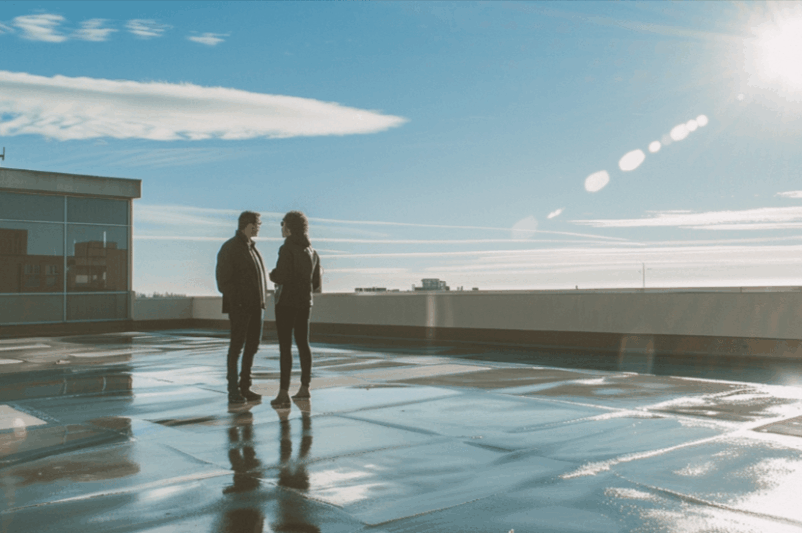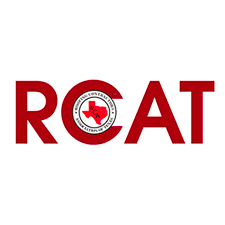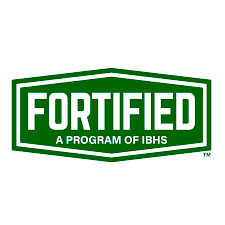
Roof maintenance is crucial for the longevity and safety of commercial buildings. This is especially true here in Texas, as the weather can be about as predictable as a roulette table.
However, the responsibility for roof repairs often depends on the specifics of a lease agreement. Misunderstandings about these responsibilities can lead to disputes and costly repairs.
Understanding Commercial Lease Agreements
Commercial leases are significantly more complex than their residential counterparts, primarily because they are tailored to business needs and can vary greatly from one property to another. These agreements serve as the foundation for defining who holds responsibility for various aspects of property maintenance, including roof repairs (among many other things).
Lease agreements generally categorize maintenance tasks between landlords and tenants to prevent overlap and ensure that all necessary maintenance is accounted for without redundancy. For landlords, a well-maintained property adheres to safety standards and preserves the value of the investment. For tenants, clear maintenance responsibilities ensure that they can operate their business without unexpected disruptions caused by property issues.
Dividing Responsibilities
In commercial leases, the allocation of responsibilities for repairs and maintenance is critical for the smooth operation of the property. This division is typically outlined clearly in the lease documents to ensure that both parties are aware of their specific obligations.
Landlord Responsibilities
Landlords are generally responsible for major repairs and overall structural integrity of the commercial property. This includes the roof, which is a crucial component of the building’s structure. Major roof repairs, such as fixing leaks, replacing sections that are worn out, or structural issues resulting from age or weather damage, usually fall under the landlord’s purview. Ensuring the roof remains in good condition is not only a matter of compliance with safety standards but also crucial in protecting the investment made in the property.
Tenant Responsibilities
Tenants’ responsibilities can vary significantly based on the type of lease agreement in place. In standard commercial leases, tenants might be responsible for minor maintenance and repairs which could include:
- Routine inspections to ensure no immediate repairs are needed.
- Maintaining cleanliness and preventing blockages in gutters and drains.
- Reporting any issues promptly to the landlord.
Cleaning and Minor Maintenance
In many commercial leases, tenants are not only responsible for keeping the leased premises clean but also for performing routine maintenance tasks. These responsibilities are critical for preventing minor issues from becoming major expenses and include:
Cleaning: Tenants typically must maintain a ‘broom clean’ state, especially upon moving out. This term implies that the tenant should remove all personal property and leave the premises reasonably clean and free of waste. However, the exact definition can vary (this is especially true for commercial vs residential broom clean condition clauses), so it’s important to refer to the lease for specific details.
Routine Inspections and Repairs: Tenants may be responsible for regular inspections of certain elements like HVAC systems, plumbing, and the roof’s surface for any signs of damage. Small repairs, such as fixing a leaky faucet or replacing light fixtures, often fall under the tenant’s duties.
Preventative Maintenance: This includes tasks like changing air filters, cleaning gutters, and maintaining the landscape. These actions help prevent system failures and structural damage, thus protecting the property’s integrity.
Reporting: It is essential for tenants to promptly report any issues that require more extensive repairs, which might fall under the landlord’s responsibilities. Timely reporting can prevent the escalation of damage and aligns with maintaining the property in good working order.
Negotiating Roof Repairs in Lease Agreements
When entering into a commercial lease, both landlords and tenants should pay careful attention to the terms related to maintenance and repair responsibilities. This is probably more applicable to tenants, as the landlords will usually have their lease ready to go. That said, it doesn’t mean you can’t negotiate more favorable terms if you feel something is out of place. The roof is obviously a huge piece of the building, so ironing out who is responsible for what is very important. Who pays for hail damage? Does the landlord have an established timeline for when a roof replacement needs to happen next? When was the last roof replacement?
- Clarity and Specificity: Ensure that the lease specifies which repairs are the responsibility of the tenant and which are the responsibility of the landlord. This should include details on how emergencies are handled and who is responsible for the costs of significant repairs.
- Negotiation Tips: Tenants should negotiate terms that consider the age and condition of the building. If the roof or other major structural elements are near the end of their life, tenants could negotiate a clause that limits their responsibility for replacements or major repairs. Conversely, landlords should ensure that lease terms protect their property and provide clear guidelines for tenant responsibilities.
- Legal Advice: It’s best practice for both parties to consult with real estate attorneys who specialize in commercial properties. This ensures that the lease complies with local laws and adequately protects both parties’ interests.
Conclusion
Understanding who is responsible for roof repairs in a commercial building is crucial for maintaining the property’s value and functionality. This responsibility should be clearly outlined in the lease agreement to prevent misunderstandings and ensure that both landlords and tenants know their obligations. Regular inspections and maintenance can prolong the lifespan of a roof, ultimately saving money and preventing major repair needs.
Both parties are encouraged to review their lease agreements carefully and consult with legal professionals to ensure that all terms are understood and reasonable. By doing so, they can maintain a positive relationship that benefits both the landlord and the tenant, leading to a successful and profitable tenure in the commercial property.





